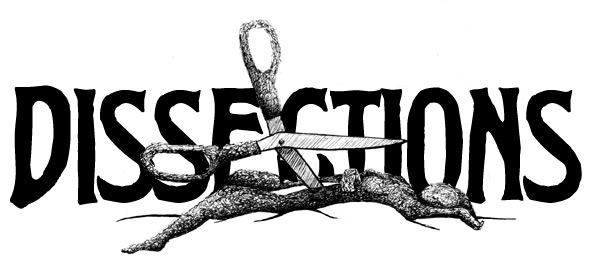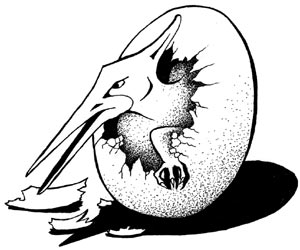[an error occurred while processing this directive]


The Washerwoman
Regina Hansen
Morag’s hair is long and clean and golden, with a hint of red in it, like sun on the sea. She tosses the hair back from her pale sharp face and walks lightly to the river, two empty buckets in her hands.
“Ann MacLean won’t wear that blue dress to another dance,” Morag says out loud, to the empty fields. “Serves her right, for dancing with John Ferguson all night. He’s to be my husband...” She gives a short cold laugh. “When he sails for America, it’s me he’ll take with him.”
Morag climbs over the rocky field on small, lovely feet, the same ones that tripped Ann MacLean into the peat fire at last night’s dance. “Poor Ann,” Morag smiles to herself that smile that hardens her beauty. “I’m sure her hair will grow back.”
As Morag nears the crest of the hill, not yet within sight of the river, an odd sound brings her out of her thoughts of the fine clothes she will buy in Boston or New York. It is a dull, steady, wet thud, repeated over and over again, like someone beating a small dead animal. Rounding the hill at last, Morag catches sight of what’s been making the sound. An old woman in a ragged dress – its color all run to faintly purplish gray – squats by the river with her back to Morag. Beside the woman is a pile of clothes. She takes a dress from the pile, blue as the one Morag wore to the dance, and stained with blood. The old woman dips the dress in the river water, releasing the blood from the fabric in a cloud, than takes it out and slaps it against a large grey rock, five, six times before putting it aside for another dress, of white lace, like the one Morag dreams of wearing when she marries John Ferguson, the young sea captain. As the old woman slaps the white dress against the rocks, the blood that stained it spreads until the whole dress has changed to a sickly brown.
“The Bean Nighe,” Morag whispers, frozen to her spot on the hill. “But I thought she was just a story.” Morag’s mother has told her about the bean nighe, the Little Washer by the Ford, who squats by the river washing the clothes of the soon to die. To see her means your own death is near, Morag’s mother has assured her, but Morag never paid any attention to the ignorant woman with her foolish prayers and superstitions, and is only waiting to leave their filthy crofter’s hut with its dirt floor and straw roof and make her way, somehow, to America. She sees now that her chance has come, and that perhaps her mother has been right, for once.
She hasn’t seen me yet, Morag says to herself, then laughs softly. Her ragged peasant of a mother has actually been of use to her this time, at least her stories have. If one can catch the Little Washer before being seen, death can be averted, and more than that ... Morag sets down the empty pails in the grass and takes from her wrist the small iron bracelet, engraved with the sign of the cross, that her mother has given her for protection. On her small silent feet, those capable of tripping a dancing woman into a fire, she approaches the bean nighe from behind, holding out the bracelet.
“Old woman!” Morag says sharply as she nears the river. “Old woman, turn around.”
The bean nighe gives one more slap to the dress she is “cleaning” and turns slowly toward Morag – who barely holds in a gasp. The woman’s hair is greasy and straight, with a bald patch at the crown from where she has pulled it out. Her eyes, in her round and strangely pale face, are yellowed over with cataracts and ringed red as if from weeping, but with a glint of green around the pupil.
“So,” the bean nighe says through a mouthful of broken teeth. “So, Morag, you have found me first.” Her voice is flat and hoarse, like someone who is done with crying, and she has an accent, too, as if the words she speaks are foreign to her.
“I’ll have my wishes, old woman,” Morag whines, still holding out the bracelet. “I’ve caught you and I’ll have them.”
The bean nighe gives Morag a look both weary and sly, a mother calming a child in a tantrum. “Well, what are they, then?”
“I want to go to America.”
“Lord Selkirk’s ship leaves South Uist port in a week. Captain and Mrs John Ferguson will be on it.”
“John Ferguson.” Morag spits, and goes on to her next wish without thanks for the first. “I want a singing voice better than Ann MacLean’s, so beautiful ... so beautiful that it ... it charms the waters.”
The bean nighe’s grin shows more of her broken teeth, but she says nothing.
“Do it old woman.”
“It’s already done. Now what for the third and last of your wishes?” Behind the bean nighe, the sun is beginning to set on the river flowing westward into the North Atlantic.
“Beauty,” says Morag clearly. “I want beauty.”
“But you already have ...” The bean nighe’s tone is flattering, wheedling. The setting sun bleeds its light into the water, like the stain from the soaking clothes.
“No, no, I want it forever. I want to be young and beautiful always ...”
“Ahhhh,” the bean nighe says in a satisfied tone. “Now, that wish is not mine to grant. There’s a price for that wish.”
“I’ll pay it,” says Morag quickly, impatiently. “What is it?”
“A tithe. A tithe of blood to the sea. Each cycle, of twenty years, sometimes more, sometimes less, you must lead a willing soul into the sea to drown. When the sea receives its tithe, your youth and beauty will be restored to you. Without it, you will age just as other women, and lose your looks just the same.”
“But how will I get someone to drown for me?” Morag asks desperately, though she will not hesitate to pay the price if she can.
“You have your beauty,” says the bean nighe in her flat hoarse voice. A silver chain glints at the old woman’s neck, like a thick braid. “And your voice, a voice to charm the waters is what you wanted. Try it now. Sing.”
Morag begins. What comes from her mouth would not charm anything; even she knows that. She stops and turns to the bean nighe, angry. “Old woman, my voice sounds exactly the same.” The air is still.
“You have to step into the water,” says the old woman, her flat voice rising slightly. A breeze sends a ripple across the still water. “Step into the water and sing.”
Morag removes her shoes – the heavy black boots she hates – and does as she is told. As the tiny incoming waves lap at her feet she begins again to sing. What comes out of her mouth is dull as it has ever been, but behind her someone else is singing. The old woman. It is one note at first, then many notes together, coming from deep in the woman’s throat. Morag has heard music like this before, at funerals, but something makes it different this time. Funeral music is sad, Morag thinks, and there is no sorrow in this music. She tries to copy what she is hearing. Morag feels dizzy for a moment, as the still evening air shivers again and the surface of the river begins to shake as if stirred by invisible hands. Morag stops singing, draws in her breath.
The bean nighe stops, too. “Keep singing,” she urges, her voice the slap of bloody clothes on rocks. Her hand is grasped around the silver chain at her neck. “Step further into the water.”
Morag hesitates and begins again singing, feeling the old woman’s voice as if it were coming out her own mouth. It’s happening, Morag thinks, and visions of America, of dresses and adventures, appear in her mind. Something seems to rise out of the now churning water.
“Keep going.” The old woman urges her between breaths of strange song. Slowly, the head of a horse appears, then its neck, its shoulders. A horse, but smaller and sleeker than any horse Morag has seen. Gray like the river, it rises slowly toward Morag until it is standing only three feet from her. Its long, slender legs are still half submerged, its head bowed.
“The water horse, the kelpie,” Morag exclaims. “Mother was right about it, too. And now I’ve called it to me with my voice.” She laughs and turns to the bean nighe, who has come close to her without her knowing. There’s a seashell hanging from the silver chain at the old woman’s neck, curved inwardly and spiked, becoming infinitely smaller. The old woman’s thin lips curve like the edge of a fishhook.
“Yes, with your voice.”
Morag holds out her hand to touch the creature’s mane, and its long, longer than normal neck. The horse’s mane is wet to Morag’s touch, and so sticky that she can’t release her hand. She pulls at it with her other hand, and now they are both stuck, entwined in the gluey fibers as in a trap. Morag feels a panic inside her.
From behind her comes the old woman’s voice again, flat and full of contempt.
“Didn’t your mother tell you not to touch the water horse when it is wet?”
The horse rears back as Morag again struggles to get free. “But … but …” Morag sputters.
“But, your wishes?” The bean nighe, who is not the bean nighe, who is older by far than that story, laughs, fingering the silver seashell pendant. “Who told you I could grant wishes?”
Morag tries to dig her feet into the river bottom, to stay put, but she can’t find any purchase. She lifts one leg to kick the creature away as its body elongates, serpent like, its eyes deepening to red, its teeth getting longer, longer. Now her skirts are caught, glued to the kelpie’s black scales. She is screaming, calling to her mother, to God, to anyone. “Please, please help me!”
The kelpie throws back its scaly head and roars, its teeth
jagged and yellow. Morag is pulled momentarily out of the river before
the creature dives, dragging her struggling deeper and deeper into the
suddenly roiling water. On shore the old woman watches, and sings.
**************************************************************************
